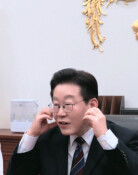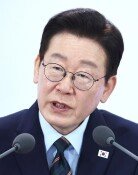The Truth Behind Teachers` Union Claims
The Truth Behind Teachers` Union Claims
Posted March. 26, 2010 03:01,
The Labor Ministry has found that the educational offices of Busan, Gwangju, Jeju, and the provinces of Gyeonggi and South and North Jeolla signed collective bargaining agreements that avoid student evaluations of teachers and give up excellence in education with teachers unions. The agreements of six education offices have this goal in common: evaluating schools as little as possible. The educational offices of Gwangju, South Jeolla and Jeju included a clause banning the formation of a class for excellent high school students. The offices in Busan, the Jeolla provinces and Jeju also made it mandatory to get teachers approval before a school can apply to become an exemplary school.
Without proper evaluation of schools, students and their parents cannot get information on good schools. Why is a principal needed if a school can neither create a class for excellent students nor apply for exemplary school status without the teachers union approval? The educational offices indirectly cooperated with teachers unions that dislike school evaluations by signing collective bargaining agreements. Of the 452 clauses in the agreement analyzed by the ministry, only 152 or 33.5 percent were not illegal or inappropriate for labor activities or agenda for negotiations, which makes rules meaningless.
Most of the clauses were agreed on under the previous administration, over which the Korean Teachers and Education Workers Union was influential. Ten of the countrys 16 educational offices nullified the agreements, but six remain in effect. It is worrisome that Korea has been besieged by the unions philosophy of liberalization of education.
Not just confined to influencing educational policies through collective bargaining agreements, the union is determined to elect school superintendents in the June 2 local elections to make their policy take root. Pro-union forces will unify candidates by April 7 and start their campaign. The corruption scandal of the former head of the Seoul Metropolitan Office of Education, Kong Jeong-taek, could be good news to the union. Moreover, many conservative candidates in districts are likely to split the vote.
If a union-backed candidate is elected, the philosophy of the union will likely take root as education policy beyond collective bargaining agreements. A case in point is the Gyeonggi Provincial Office of Education, whose head is pro-union. The office said it will cut the number of national standardized tests but changed its mind after parents complained.
The educational offices that sign such agreements with the union can neither revive public education nor contain private tutoring. The government should not just emphasize controlling the private education sector while ignoring that teachers, schools and educational offices are not doing what they are supposed to do. Parents also need to display a sense of urgency.





![[단독]폴란드, 韓 해군 최초 잠수함 ‘장보고함’ 무상 양도 안받기로](https://dimg.donga.com/c/138/175/90/1/wps/NEWS/IMAGE/2026/02/27/133437397.1.jpg)

